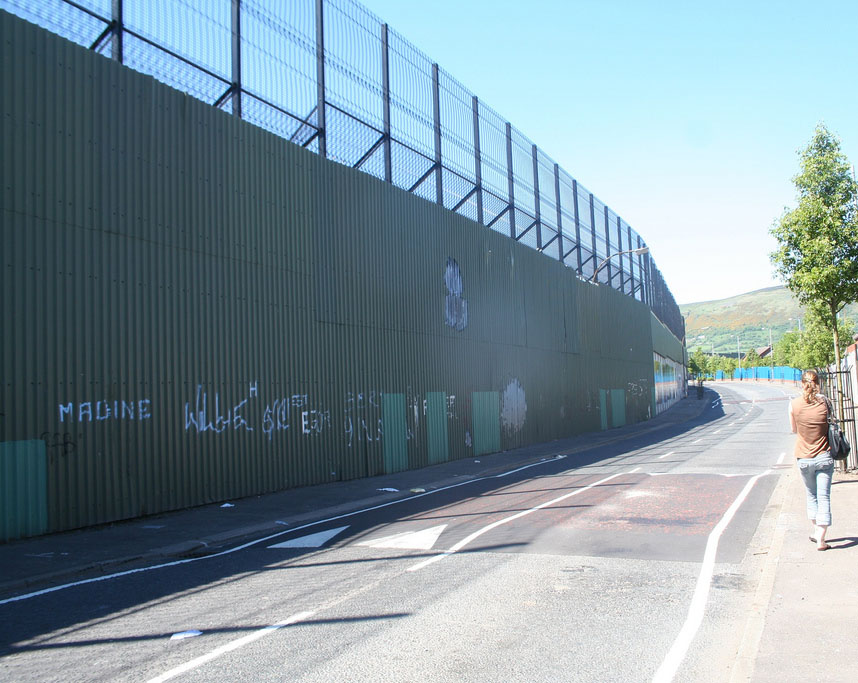
The peace line along Cupar Way in Belfast, seen from the predominantly Protestant side. Photograph Source: Duke Human Rights Center – CC BY 2.0
On the night of 15 August 1969, a Protestant mob burst into the Catholic part of west Belfast and burned down houses in and around Bombay Street, forcing the Catholic population to flee. The pogrom had a traumatic impact on Catholics in Northern Ireland, delegitimising the authorities for tolerating or assisting the mob, and playing a key role in the creation of the Provisional IRA.
On Wednesday night this week, a Protestant mob from the Shankill Road used cars to smash their way through the massive steel gates in the so-called peace wall dividing Protestants from Catholics in west Belfast. “The attack was very dangerous,” says Brian Feeney, a historian and columnist on The Irish News, taking place as it did close to a rebuilt Bombay Street and reawakening old terrors. “If the mob had broken through [the steel gates], they would probably have been met with gunfire.” Reports on violence in Northern Ireland over the last week – the worst for decades according to the police – fail to understand that rioting in the province is of two types that look the same but have very different impacts. One is skirmishing with the police by setting fire to vehicles and hurling stones, petrol bottles and fireworks. Dangerous though this is, it has been practised by both communities at different times to advertise their grievances, on the correct presumption that events in Northern Ireland will be ignored by people in mainland Britain and the wider world unless there are dramatic scenes of violence to grab their attention.
But there is another much more dangerous type of rioting in which one community is pitted against another and which awakens memories of past sectarian blood-letting. This is what gives that attack launched from the Protestant Shankill Road towards the Catholic Springfield Road in west Belfast this week such deadly potential.
“It is so depressing,” said a friend in Belfast with long experience of the conflict. “This is the sort of thing I thought we had left behind us.” Sectarian hostility between the Catholics and Protestants never died away, but for 23 years the Good Friday Agreement (GFA) has kept a rough-and-ready balance of power between the two communities that is now close to breaking down.
My friend in Belfast, who lamented the return to old animosities, puts much of the blame on the first minister and Democratic Unionist Party (DUP) leader Arlene Foster. “She is incredibly incompetent,” he says, and she certainly has a record for inept opportunism that weakens her own community and exacerbates sectarian friction.
Yet there is more to the escalating conflict than the failings of Foster and the DUP. Unionists determined to keep Northern Ireland part of the UK are facing a more general crisis. The origins of this go back to the ending of the Protestant-dominated statelet after what was politely called “The Troubles” but was really a vicious low-level war lasting 30 years.